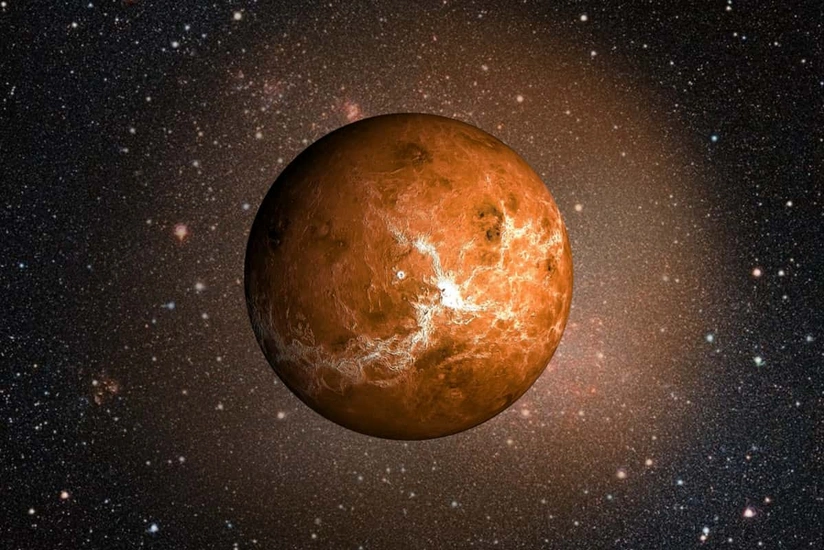Scientists spot potential sign of life in Venus
- 15 September, 2020
- 05:08

An international team of astronomers has detected a rare molecule in the atmosphere of Venus that could be produced by living organisms, according to a study published Monday. The discovery instantly puts the brightest planet in the night sky back into the conversation about where to search for extraterrestrial life.
The researchers made clear this is not a direct detection of life on Venus. But the astronomical observations confirmed the highly intriguing presence of the chemical phosphine near the top of the acidic clouds that blanket the planet.
Phosphine is a simple molecule produced on Earth by bacteria and through industrial processes. As a result, it is on the list of molecules — oxygen being another — considered by scientists to be potential "biosignatures" of life on Earth-sized planets whose atmospheres can be viewed through telescopes.
The researchers said they know of no non-biological explanation for the relatively high abundance of the Venusian atmosphere's molecule.
"We did our very best to show what else would be causing phosphine in the abundance we found on Venus. And we found nothing. We found nothing close," said Clara Sousa-Silva, a molecular astrophysicist at the Massachusetts Institute of Technology and a co-author of the paper published Monday in Nature Astronomy.
Venus is broiling at the surface, but there are layers of the atmosphere where temperatures and pressures are moderate and solar radiation isn't too intense. For decades, some planetary scientists have speculated that microbes could be circulating in the atmosphere, dominated by sulfuric acid and carbon dioxide, and has only small water vapor traces.
Mars has long overshadowed Venus as a potential abode of life because its dense atmosphere and proximity to the sun have led to a runaway greenhouse effect, resulting in hellish surface temperatures and crushing atmospheric pressures. Robotic probes have revealed a landscape that appears inhospitable to any imaginable life form.
